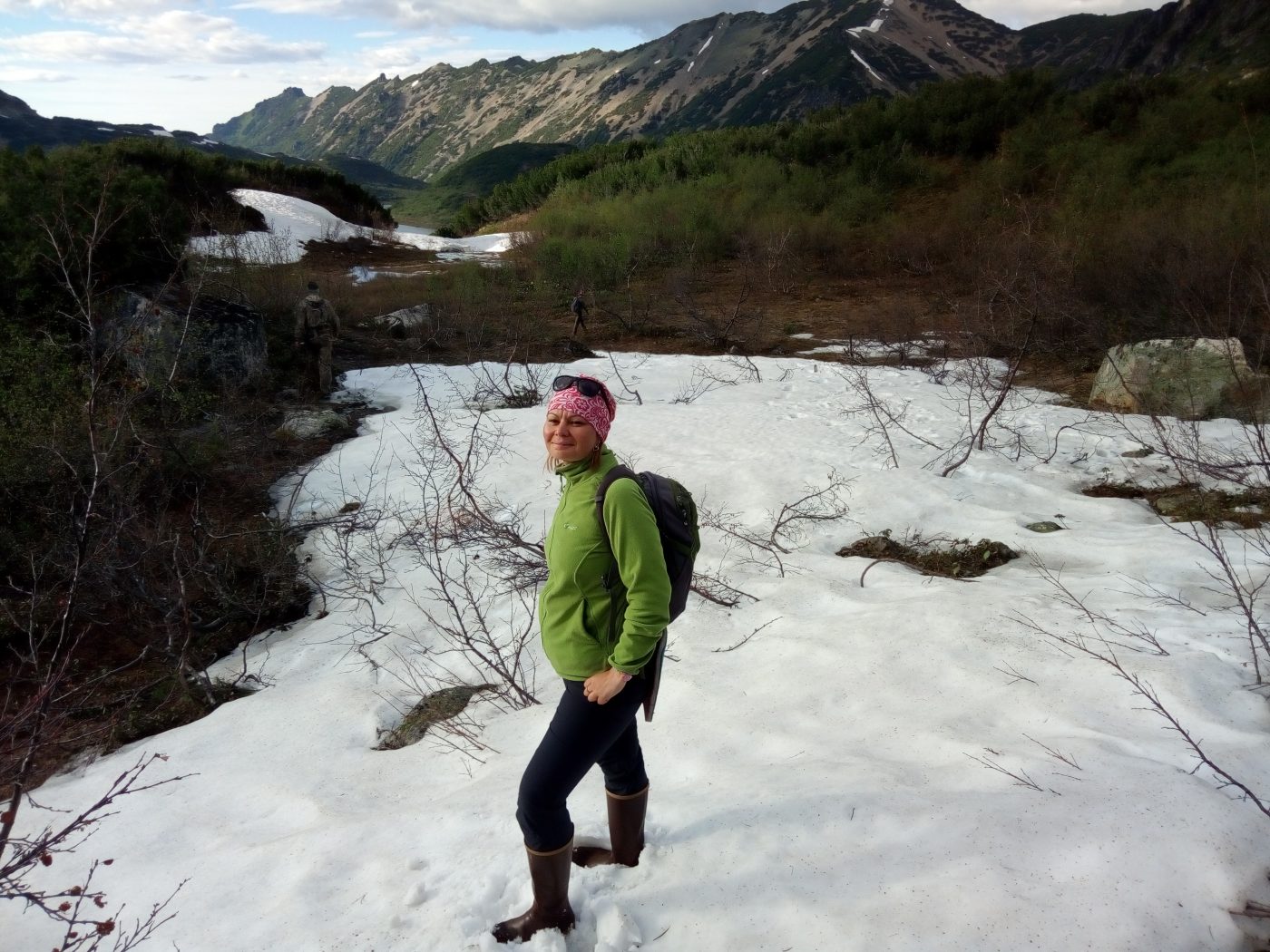Natalya Luzhkova is one of the winners of the «Baikal Initiative» contest 2019. She is leading the scientific group which is working on the project «Educational tourism as a tool for nature complex conservation under conditions of pyrogenic and anthropogenic load». Lake Baikal Foundation supported the project with 240 000 rubles. Natalya Luzhkova told us about the stages of work and about the importance of grant support for young scientists.
What inspired you for this project?
The highlands of the Svyatoy Nos peninsula are not studied enough by biology and geography. At the same time, the location is highly popular among tourists: the plateau is a top destination in the Zabaikalsky national park and the final point of the mostly visited route «Trail of Endurance». Our team wants to find out which natural obstacles could keep the educational tourism, especially backpacking, from thriving? Is it possible to develop it? What protective actions for the landscapes and their components should we take?
How will the results contribute to the Baikal ecosystem and science?
The project includes two parts: site investigation and implementation of the GIS system for general use by the employees of the national park. The former is aimed at studying the landscapes’ components, their resilience and pyrogenic impact on flora and fauna. The latter is aimed at systematization of the obtained data in GIS. As a whole, the results of the project will contribute to the optimization of studied area management as well as other territories of the «Zapovednoe Podlemorye».
Has anyone done such research before? How is your project different?
Yes, such comprehensive research is carried out in many specially protected natural areas (SPNAs). Our project is focused mainly on landscape and infrastructure approaches to the development of educational walking tourism.
Can the project be scaled up to other regions?
Yes, it can. Mainly to the SPNAs of the Baikal region.
How long have you been into science and why did you choose this path?
I entered a PhD program in the V.B. Sochawa Institute of Geography of the Siberian Branch of the RAS in 2008 and since then I have started the scientific work. At that time, I worked in an NGO which was constructing the hiking trails and it stroke me that this requires biological, geographical research and economic justification.
Have you been a project leader before?
Yes, I have quite a long experience of managing scientific and volunteer projects.
How do you see your professional development?
I see it in creating working mechanisms and using fundamental knowledge in the SPNA management and especially development of sustainable tourism.
Tell us about your team. How does each one contribute to the project? Where lies the motivation?
We have a great experienced team. We have already done research together. Evgenia is a botanist with 10 years seniority in the Barguzinsky reserve and the Zabaikalsky national park. Anastasia is a geographer and erudite, her knowledge allows to make landscape descriptions, map, make economic analysis. Vadim knows everything about the mammals of «Zapovednoe Podlemorye». The most important thing is that we all love the field work and camp life. The Svyatoy Nos plateau has always been a dream for many of us and this summer, thanks to the grant, it will come true.
What do the Russian scientists, especially the young ones, lack nowadays?
I think that one of the biggest problems is a low level of the speaking English. If you speak a foreign language and read foreign literature you discover plenty of exchange programs and scientific articles.
How are the similar projects funded? What are the sources of financing?
There are grants for fundamental research but there is a very high level of competition in such contests. The applied projects like ours have much less sources of funding, mainly they are foundations. However, the way the government treat them now is not very promising, you know.
How do you see the development of the Baikal natural area?
I have high hopes about the sustainable development of tourism.
What do you personally do or will do for conservation of the lake apart from the scientific work?
«Ecological home» – we start with ourselves. We practice recycling, use biodegradable chemicals, talk to the local population about it.
In your opinion, what should we do to preserve lake Baikal for the future generations?
We need to develop environmental education at all levels, for people of all ages.


